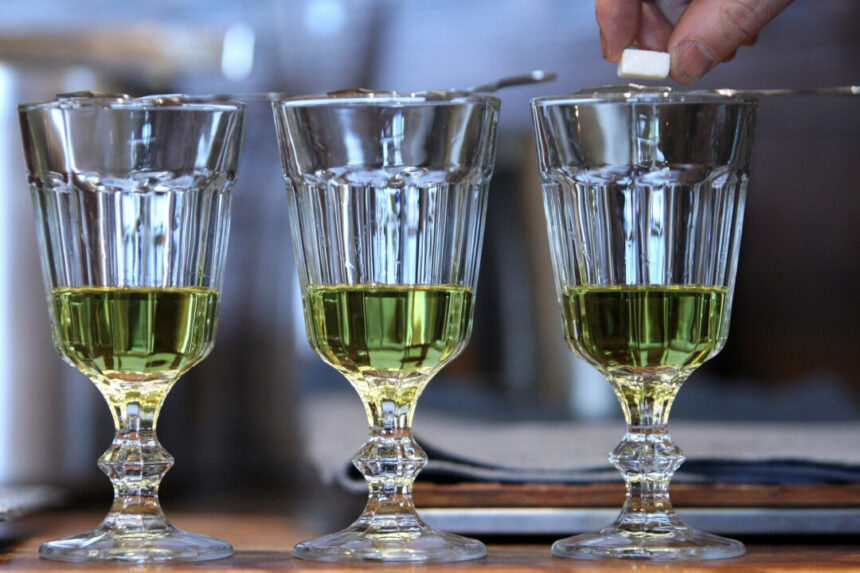Commentary
Gladly. Here is my review: It’s an exciting drink that better than any other represents the triumph of bad science over good sense. The whole thing is odd because the drink has only been legal to make and sell for about 20 years even though the distilleries that make it have been around since the 19th century.
In Europe and the United States it was mostly banned for nearly 100 years. It is all because science had wrongly declared it to be a dangerous hallucinogenic due mostly to its use of wormwood, a medicine drawn from the plant artemisia absinthium. It was never true: the real issue was always the alcohol.
And yet for many decades, there was a strange moral panic about the stuff. Even now, it is associated with danger and most people think it will cause some strange effects on the human psyche, complete with hallucinations of green fairies. There is a lesson here we should explore.
“After the first glass of absinthe you see things as you wish they were. After the second you see them as they are not. Finally you see things as they really are, and that is the most horrible thing in the world. I mean disassociated. Take a top hat. You think you see it as it really is. But you don’t because you associate it with other things and ideas. If you had never heard of one before, and suddenly saw it alone, you’d be frightened, or you’d laugh. That is the effect absinthe has, and that is why it drives men mad. Three nights I sat up all night drinking absinthe, and thinking that I was singularly clear-headed and sane. The waiter came in and began watering the sawdust. The most wonderful flowers, tulips, lilies and roses, sprang up, and made a garden in the cafe. ‘Don’t you see them?’ I said to him. ‘Mais non, monsieur, il n’y a rien.’”
Kind of makes you want to go out and buy a bottle right now. Fortunately you can, because your right to drink it has been restored. The century-old moral panic is over. However, with that change, some of the cachet has been drained away from this yummy drink, which, as it turns out, is just a drink like any other: if you drink too much, you get drunk. Nothing special here.
“The question whether absinthe exerts any special action other than that of alcohol in general, has been revived by some experiments by MM. Magnan and Bouchereau in France. These gentlemen placed a guinea-pig under a glass case with a saucerful of essence of wormwood (which is one of the flavouring matters of absinthe) by his side. Another guinea-pig was similarly shut up with a saucerful of pure alcohol. A cat and a rabbit were respectively enclosed along with a saucer each full of wormwood. The three animals which inhaled the vapours of wormwood experienced, first, excitement, and then epileptiform convulsions. The guinea-pig which merely breathed the fumes of alcohol, first became lively, then simply drunk. Upon these facts it is sought to establish the conclusion that the effects of excessive absinthe drinking are seriously different from those of ordinary alcoholic intemperance.”
You can imagine, then, why that generation of artists, poets, playwrights, and literary gadabouts immediately seized on this drink and caused it to be the most fashionable in the land, spreading the plague of absinthism far and wide. Paintings, poetry, and music were written in homage to the great muse of the green fairy. No doubt that people believed it, just as Dumbo thought it was the feather that made him fly.
For a century, absinthe was wrongly believed to cause insanity, leading to its prohibition in 1915. However, scientific analysis revealed that the real danger came from the high antimony content in the drink, not the wormwood oil. Despite the bans, absinthe rituals continued, adding to its allure. The prohibition only served to increase the drink’s popularity, creating a cycle of overconsumption, bans, and speakeasy culture. Eventually, absinthe became just another cocktail ingredient, losing its mystique. The history of absinthe serves as a cautionary tale of how moral panics can lead to misguided bans. Celebrating the return of absinthe freedom is a reminder to cherish every bit of liberty gained. The future potential of wormwood as a COVID treatment adds an intriguing twist to the story. Overall, the author’s conflicted feelings about absinthe’s potency are honestly shared, making for a candid reflection on the drink’s enduring appeal. Can you rephrase that?
Source link







